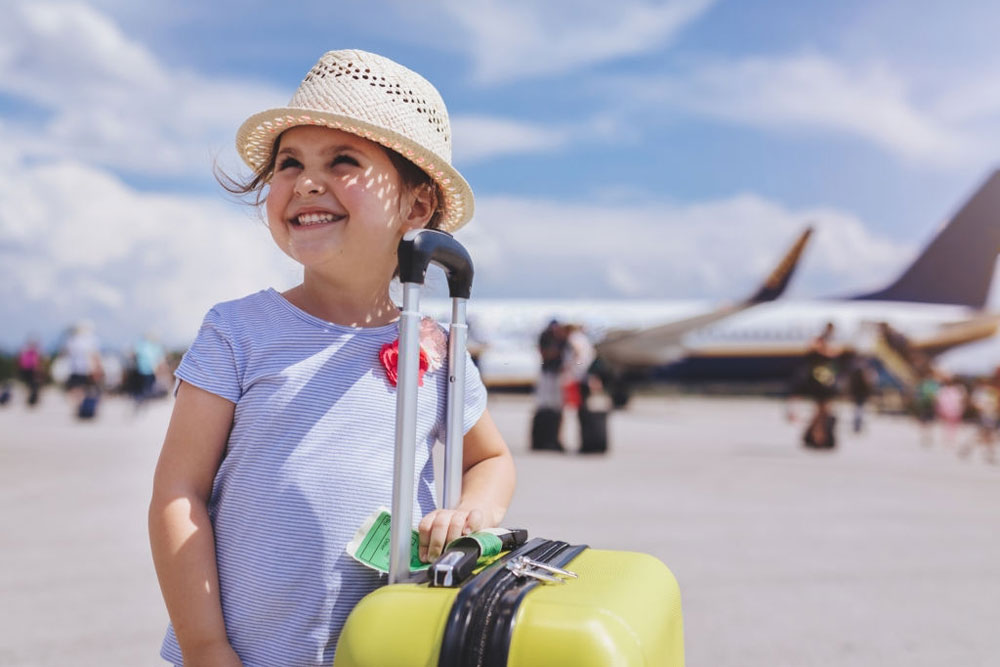Holidays without parents allow children to gain maturity and autonomy. How do you go about avoiding worries and anxieties?
Letting his child travel alone allows him to gain independence and self-confidence. Whether the holidays take place as part of a summer camp, a language study trip, or a getaway with friends, these special moments spent away from parents contribute to the development and autonomy of the child.
Summer camp
Holiday camps generally accept children from the age of 3. There is no point in urging them to leave for summer camp if they don’t feel ready yet. Indeed, in order for these holidays without parents to go as smoothly as possible, it is important to listen to the little ones. Most of the time, the child brings up the subject when he is 5/6 years old. But, if he is not yet talking about going on vacation alone around 8 to 10 years old when you think that it would be profitable for him, it is up to you to evoke him subtly and to question him to know his desires.
Thanks to the summer camps, the child gradually learns to cut the cord that connects him to his parents. He washes, makes his bed, puts his things in order, tidies up, and cleans his room, according to the organization set up within the colony. At the same time, he develops social skills, begins to open up to others, to share, to show generosity, and to accept living with others.
The summer camp is also an opportunity to practice different activities such as horse riding, sailing, swimming, paragliding, theater, music, etc. These solo vacations can be the trigger that will awaken the child to a sport, an art, or a specific field. He also learns to communicate, to speak in front of others, to defend or share his ideas and experiences with his comrades. All of these opportunities will build his character, especially if he’s shy.
Of course, the summer camp is the holidays! The child is there to have fun with his new friends and with the educators. This kind of stay alone will allow him to live a new experience, in a relaxed atmosphere, and under the benevolent supervision of the instructors.
Despite all these positive and attractive aspects, it is quite normal to feel some apprehension when your child leaves for summer camp. To better prepare yourself, you can let him go on vacation with his grandparents or other members of your entourage from time to time.
To reduce the anxiety linked to separation, parents should find out as much as possible about the organization that manages the summer camp, the place where their child will stay, the number of participants, but also the competence of the director of the summer camp and monitors. In general, the organization’s website presents photos of the camp as well as the telephone numbers or email addresses of those in charge.
Parents are also advised to psychologically prepare their child to live these vacations away from them. Try to make him understand that this is a great experience, that he will have lots of friends and that he can do many activities that will pass the time. This is why it is recommended not to send it to a summer camp where there is only one main activity with the risk that the child will not join.
On another note, it is important to properly organize your child’s vacation by carefully preparing their luggage. For this, you must take into account his age, the duration, and the place of his stay as well as the internal organization of the camp. If he’s only going for 10 days, there’s no need to fill two suitcases with all his clothes. Likewise, Brittany is not Siberia, and shorts are more appropriate there than parka in summer! The ideal is to put his things in a suitcase with wheels so that he can pull it. Avoid choosing a suitcase larger than your child, as it will take a lot of effort for them to move it. Do not neglect the backpack which will be useful for excursions and to take his belongings if he goes to the beach for example. In the event that your child goes camping,
As for pocket money, you must adapt the amount to the age of the child and the situation in the camp. A 7-year-old just needs a little money to buy candy, cookies, and postcards to send to his parents. If he is a little older, he will need a little more pocket money for his expenses.
Holidays with friends
When your child grows up and becomes a teenager or young adult, it is sometimes no longer a question of going to summer camp or a language study trip. From the age of 15 or 16, he will generally want to go with his friends. This kind of vacation will allow him to strengthen his independence. Indeed, on the threshold of an active life or before going to university, he must learn to fend for himself and to solve the problems that may arise during his trip.
However, this does not preclude taking certain precautions. Specialists recommend signing a contract of confidence that includes the commitments of one to the other. Ask him to promise to pay attention to his safety, not to be reckless, and not to be outside alone after a certain time, for example. The main thing is that he feels responsible. On your side, you should also guarantee that you don’t call him every hour or text him every 5 minutes. In short, not to suffocate or disturb him while he is having fun with his friends. Likewise, it is important to let him know that in the event of a problem, you are always reachable at all times and that he can count on you to help him.
For your teenager, going alone or with his friends has the advantage and at the same time the responsibility of having to manage his expenses. If he spends too much, he may not have enough money to complete his trip. This experience will be particularly beneficial to him in the future when he will have to manage his own budget. For convenience and to avoid theft, you can offer him a bank card that he can use. As you can limit the daily withdrawal limit, this will facilitate the management of his budget and you will be reassured, he will not be able to spend all his money at once! There are even bank cards with systematic balance control which do not allow any excess balance.
If he doesn’t have a cell phone yet, maybe now is the time to give him one. This will allow him to reach you to give his news and call for help if necessary.
Let your child travel protected
Whether your child is going alone, with his friends, on a summer camp, or on a language study trip, his safety is essential. Taking out travel insurance allows him to benefit from optimal coverage.
There are different ways to let your child go on vacation alone. These experiences will allow him to learn to adopt social attitudes and to acquire more autonomy. For your peace of mind and that of your child, it is recommended that you take out travel insurance before leaving to cover any incidents that could disrupt their stay.

